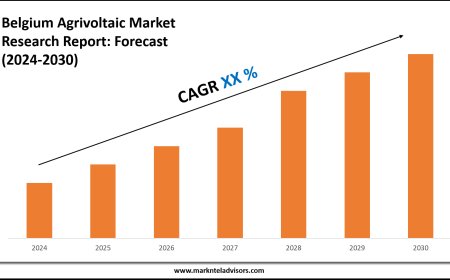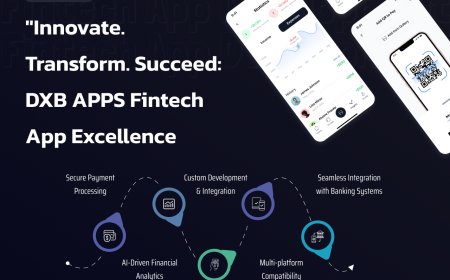Zapier Developers for Lead Automation

In the digital age, speed equals successespecially when it comes to capturing and responding to leads. Your business could be running the best ad campaigns and creating the most compelling offers, but if your follow-up process is slow, clunky, or manual, youre leaving money on the table.
Thats where lead automation comes inand more specifically, where Zapier developers become game-changers for your sales and marketing efforts.
In this blog, well explore why lead automation is critical, the role of Zapier developers in building custom workflows, and how businesses are using Zapier to turn their lead response times from hours to seconds. If youre ready to stop losing leads and start converting faster, keep reading.
What Is Lead Automation and Why It Matters
Lead automation is the process of automatically capturing, routing, and following up with leads across your digital platforms. It eliminates the manual tasks that usually bog down your sales or marketing teamlike transferring form submissions into CRMs, sending initial emails, or assigning new leads to team members.
The Problem With Manual Lead Handling
If your team is manually copying data from contact forms, checking inboxes, or assigning leads in spreadsheets, youre vulnerable to:
-
Slow response times
-
Human error and data loss
-
Missed follow-ups
-
Disjointed customer journeys
These arent small issues. Studies show that businesses that respond to leads within 5 minutes are 100x more likely to connect and convert compared to those that respond after 30 minutes.
The Power of Automation
With automation, you can respond instantly and consistently. Imagine this:
-
A prospect fills out your form
-
Their data is sent to your CRM
-
A personalized email or SMS is sent immediately
-
A follow-up task is created for your sales rep
-
Your analytics dashboard updates in real-time
All of this happens automatically, and thats the kind of magic Zapier developers can build for your business.
Why Businesses Need Zapier Developers for Lead Automation
So, why bring in Zapier developers when the platform itself is built for no-code users?
While Zapier is incredibly user-friendly for basic automations, most businesses quickly run into complex needs like:
-
Multi-step workflows with conditional logic
-
Integrations with tools that Zapier doesnt support natively
-
Handling exceptions or failed Zaps gracefully
-
Avoiding duplicated data entries
-
Scaling automations without breaking things
This is where Zapier developers step in. They bring:
-
Technical knowledge of APIs, webhooks, and custom code
-
Process expertise in mapping out and optimizing workflows
-
Reliability and scalability in automation architecture
A certified Zapier developer can transform Zapier from a handy tool into a fully operational automation engine.
What Zapier Developers Do for Lead Automation
Build Custom Lead Workflows
Every business has its own unique lead journey. A Zapier developer maps out your ideal process and builds workflows to automate it from end to end. This might include:
-
Lead capture ? CRM entry ? auto-response ? task assignment
-
Source-based segmentation and tagging
-
Notifications to sales reps based on workload or territory
Integrate Non-Native Tools
Many businesses use niche platforms or custom-built tools. A Zapier developer can connect these using:
-
Webhooks
-
Custom code (JavaScript)
-
Zapiers API integration layer
If the app isnt in Zapiers ecosystem, theyll bring it in through custom development.
Add Business Logic
Not all leads are equal. Some need immediate attention; others can go into a nurturing sequence. Zapier developers use conditional logic, filters, and paths to build smart workflows that:
-
Score leads
-
Route them to the right rep
-
Trigger different automations based on lead data
Ensure Data Sync and Clean-Up
Messy data breaks CRMs and ruins customer experiences. Zapier developers implement:
-
Field mapping between apps
-
Duplicate prevention workflows
-
Standardization for names, phone numbers, email formats
-
Backup processes to Google Sheets or databases
Common Tools Zapier Developers Integrate for Lead Automation
The beauty of Zapier is that it connects over 6,000 apps. Here are some of the most common tools a Zapier developer might work with:
| Tool Category | Examples |
|---|---|
| CRM | HubSpot, Zoho CRM, Salesforce, Pipedrive |
| Lead Capture | Facebook Lead Ads, Typeform, Gravity Forms |
| Email & SMS | Mailchimp, ActiveCampaign, Twilio, Sendinblue |
| Project & Task Tools | ClickUp, Trello, Asana, Notion |
| Communication | Slack, Gmail, Microsoft Teams |
| Spreadsheets | Google Sheets, Airtable |
Even if your stack is custom-built or obscure, Zapier developers can find a way to automate it.
Real-World Use Cases of Zapier Developers Boosting Lead Automation
Example 1: Instant Lead Routing
Problem: A SaaS company was collecting leads from 3 different channels and manually assigning them to sales reps. Leads were often missed or delayed.
Solution: A Zapier developer built a centralized workflow that:
-
Captured all leads in one Airtable
-
Used filters to assign leads based on industry and company size
-
Notified reps instantly via Slack and created follow-up tasks
Result: Lead response time dropped by 75%, and conversion rates increased by 23%.
Example 2: Personalized Auto-Responses
Problem: A real estate agency was sending generic email replies to leads. Engagement was low.
Solution: The Zapier developer created a smart automation that:
-
Sent custom emails based on the property type and location the lead inquired about
-
Added the lead to a segmented drip campaign
-
Triggered a follow-up reminder for the agent
Result: Email open rates improved by 45%, and the team saved over 10 hours/week.
Example 3: Multi-Touch Nurture Campaign
Problem: A B2B service company needed to nurture leads over time but had no centralized system.
Solution: The Zapier developer built a workflow that:
-
Added new leads to ActiveCampaign
-
Sent a welcome email immediately
-
Added a LinkedIn connect task for sales
-
Set automated follow-ups over a 30-day window
Result: More consistent outreach and higher lead-to-client conversion.
How Zapier Developers Save Time and Drive ROI
Zapier developers dont just automatethey optimize. Their work results in:
-
Time savings: 1020+ hours per week
-
Faster follow-ups: From hours to seconds
-
Higher conversion rates: Through timely, personalized responses
-
Lower labor costs: By reducing repetitive admin work
-
Smarter decision-making: With clean, up-to-date data across tools
For most companies, the ROI of hiring a Zapier developer becomes obvious within the first month.
What to Look for in a Zapier Developer
When hiring a Zapier developer, look for someone who checks these boxes:
Zapier Expert Certification
Portfolio of successful automations
Strong API and Webhook knowledge
Experience with your tools or industry
Ability to document and explain workflows clearly
Offers training or ongoing support
Youre not just buying a one-time setupyoure investing in a long-term automation partner.
Steps to Get Started With a Zapier Developer
-
Audit Your Lead Process
-
Identify where leads come from
-
Note every manual task related to leads
-
-
Define Your Goals
-
Faster response times?
-
Better lead segmentation?
-
Automated nurturing?
-
-
Gather Your Tool List
-
CRMs, email tools, form platforms, etc.
-
-
Book a Discovery Session
-
Share your goals and challenges
-
Let the developer map out your automation blueprint
-
-
Launch and Optimize
-
Start small, test, and scale over time
-
Final Thoughts
In todays hyper-competitive market, speed is everything. If youre still managing leads manually, youre behind the curveand youre likely bleeding opportunities.
Bringing in a Zapier developer isnt just a smart move; its a strategic investment in growth. With the right automations, your team can spend less time chasing leads and more time closing deals.
The bottom line? Let humans do what they do bestbuild relationshipsand let automation handle the rest.






































